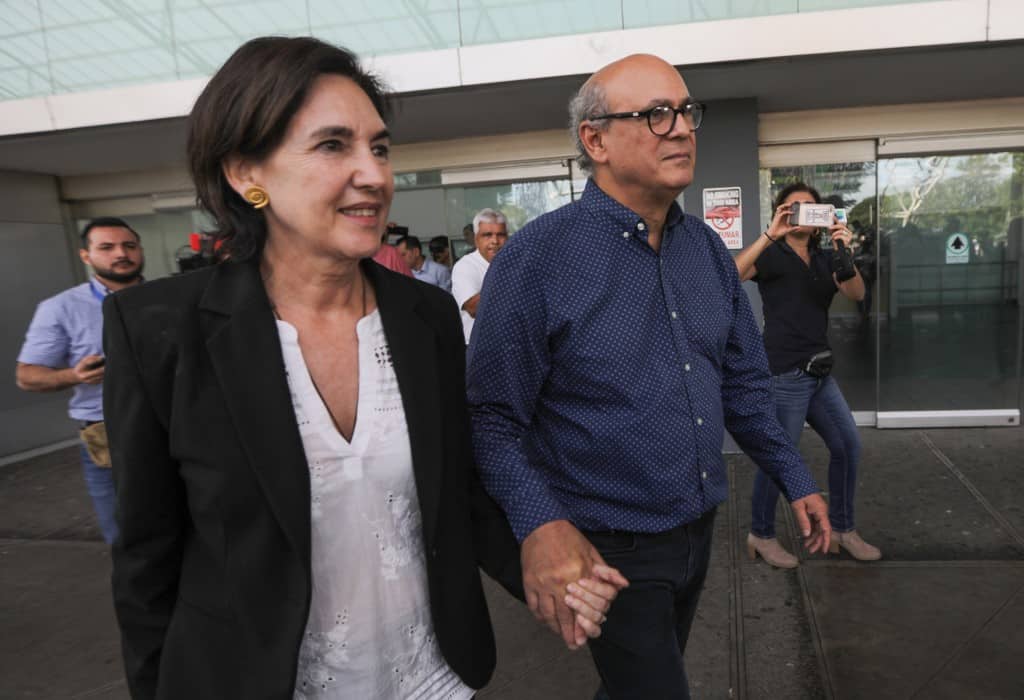Nicaraguan journalist Carlos Fernando Chamorro, a critic of the government of Daniel Ortega, returned Monday to Managua from his exile in Costa Rica, where he had moved with his family in January due to threats.
He returned to Nicaragua despite admitting there is no guarantee for his safety there.
“I am returning to my homeland after almost 11 months of exile in Costa Rica, as a citizen and journalist, to exercise my constitutional rights,” said Chamorro, owner and director of the Confidencial digital newspaper, after arriving at the Managua airport.
Chamorro, 62, said he is aware of the risks, given that the country “offers no guarantee so that the tens of thousands of exiles in Costa Rica can return.”
“In Nicaragua there is a de facto state of exception that has complicated freedom of the press, expression and freedom of mobilization,” said the journalist, whose work also included local television programs “Esta Semana” and “Esta Noche.”
Chamorro had emigrated with his family to Costa Rica on January 20 due to “extreme threats” against his integrity, he said then, after the government closed the offices of Confidencial.
He said he will demand from the government the return of the headquarters of the digital newspaper and the lifting of censorship of his television programs, which were canceled in December for denouncing and documenting the repression in anti-government protests. However, Chamorro continued broadcasting through YouTube.
Demonstrations in Nicaragua broke out in April 2018 against a social security reform and became a demand for Ortega’s resignation. The repression left 328 dead and 88,000 exiled, according to the Inter-American Commission on Human Rights (IACHR), and allegations of arbitrary detentions of opponents continue.
The journalist is one of the children of former president Violeta Barrios de Chamorro (1990-1997), who ruled during the so-called period of democratic transition, after the Sandinista revolution (1979-1990).
“I feel very excited, especially because I will be able to hug and kiss my mother, who has been in a very poor health condition for several months,” he said.
And he stressed that the examples of his mother and father — who was also a journalist, and murdered in 1978 by the last Somoza dictatorship — are the “moral force” that has sustained him “in difficult times.”
Chamorro and a group of seven journalists and opponents who accompanied him entered Managua without problems from Nicaraguan immigration authorities.






